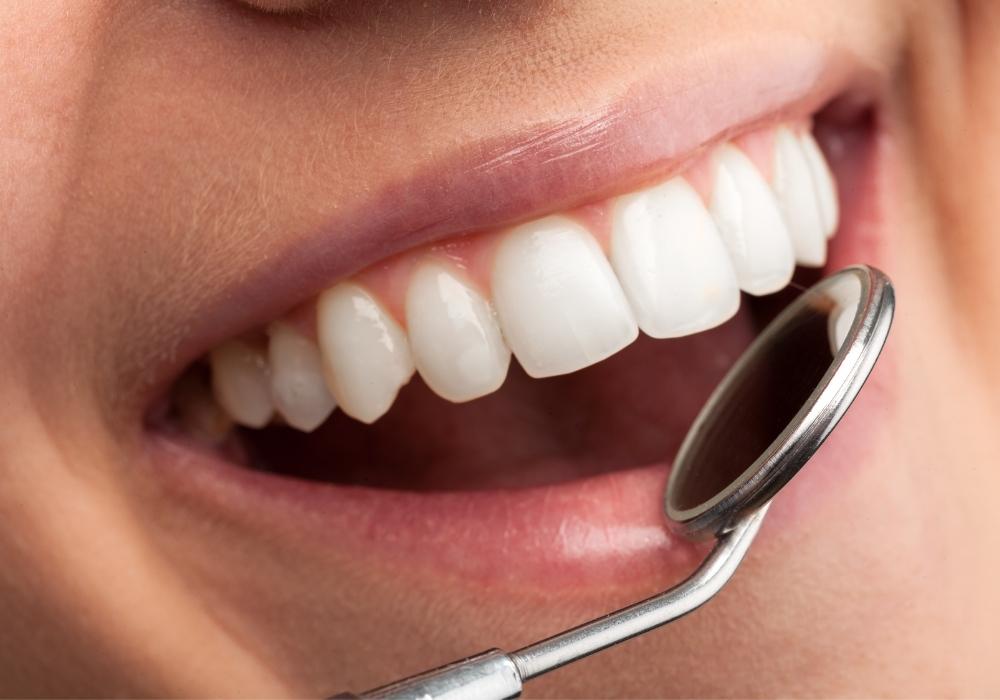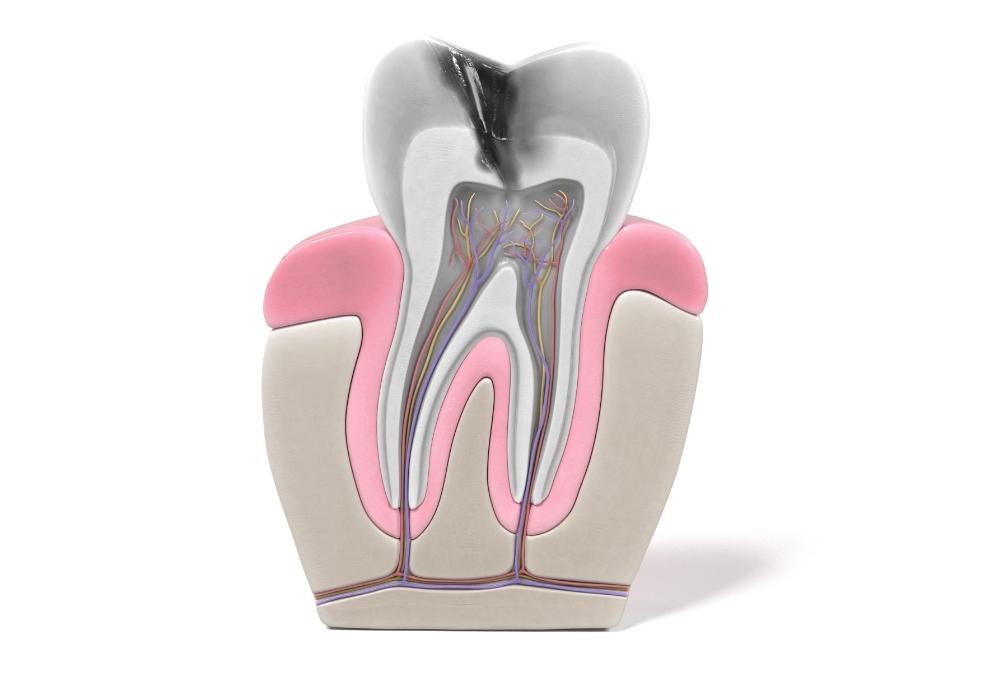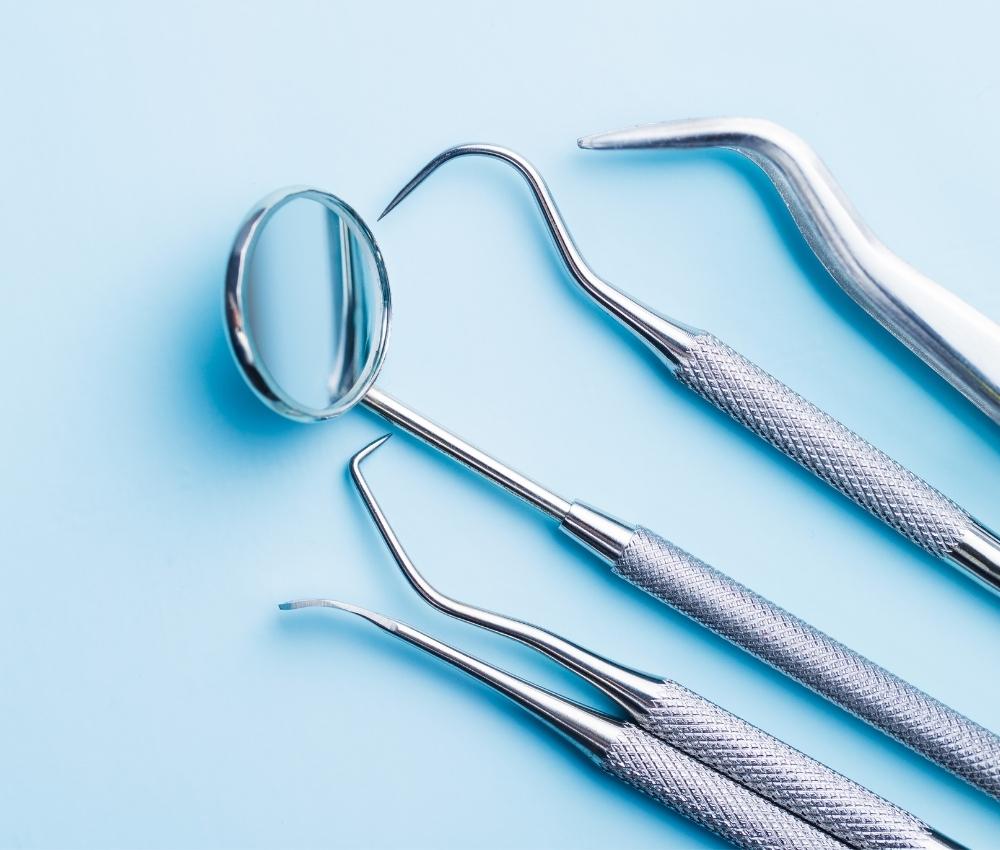Endodontics
Endodontic treatment consists of removing infected tooth tissue, cleaning the canal, disinfecting it and filling it tightly.

Endodontics - what is it?
When, through the presence of a deep cavity, the pulp becomes inflamed, the tooth then needs root canal treatment. Endodontic treatment consists of removing infected tooth tissue, cleaning the canal, disinfecting it and filling it tightly. In our clinic, we use a most modern OPMI pico ZEISS treatment microscope for endodontic treatment, as well as a highly accurate endometer that allows electronic measurement of the canal length. For root canal treatment, we use first-class endodontic micromotors with a rotary tool system and ultrasonic instruments.
Indications
- pulpitis
- pulp necrosis
- under-filled root canals (so-called root canal re-treatment or reendo)
- periapical lesions

Pain related
• The procedure is performed under local anaesthesia and is completely painless.
• We individually select the method of anaesthesia application and the type of anaesthetic for each tooth.
• After treatment, there may be a slight, temporary pain in the surrounding tissues and temporary tenderness of the treated tooth to biting.
Duration
• Root canal treatment usually lasts between 1 and 2 hours.
• It can usually be completed in one visit.
• The dental procedure may become longer if the patient has a larger number of root canals to fill, in which case several visits are needed to carry out the full treatment.
Repeatability
A properly treated tooth does not require endodontic re-treatment
Recovery
• No need for convalescence.
• Refrain from eating hard foods until the crown of the tooth is fully restored.

Results
- Beautiful and healthy smile
- Preservation of balance in the mouth
- Maintaining balance in the oral cavity
- Healing of inflammation
- Pain relief
"Endodontic treatment is often the only way to save a tooth and avoid tooth loss. In our clinic, root canal treatment is carried out using a microscope, the most up-to-date techniques and materials of the highest quality. Our doctors' experience and modern equipment ensure a completely painless and stress-free treatment process."
Dr Wojciech Radwański, clinic owner
Methods
- The Awodent clinic uses a high-tech OPMI pico ZEISS treatment microscope, which enables the canal treatment process to be carried out very precisely.
- We electronically measure the length of the canal and the distance from the root apex using highly accurate endometers.
- We use endodontic micromotors with a rotary instrument system and ultrasound instruments to prepare the canal.
- In difficult cases, we use the computer tomograph available at the Awodent Clinic, which allows radiological control of the entire course of root canal treatment.

Call and make an appointment!

Recommendations before
- It is advisable to eat a meal due to the impossibility of eating and drinking immediately after the procedure.
Recommendations after
- No eating or drinking immediately after the procedure.
- After root canal treatment, the tooth should be checked radiographically after 3 months, 6 months and after one year.
FAQ - frequently asked questions regarding endodontics
Endodontic treatment involves the removal of infected tissue and bacteria from inside the tooth. It is important for the process of treatment that the canals are properly cleaned, disinfected and filled. In many cases, root canal treatment can be completed after just one visit.
No. All procedures are performed under local anaesthetic so that the patient feels comfortable. The method of anaesthesia application and the type of anaesthetic are selected individually for each tooth . After the treatment there may be slight discomfort and tenderness of the treated tooth to biting.
It is recommended to have a meal before the treatment, as it can take up to 1-2 hours and it is advisable to avoid eating and drinking immediately after the appointment. Apart from this, no other preparation is necessary.
Pregnancy and breastfeeding are not contraindications to treatment. In this case, a suitable anaesthetic should be used and - if the patient is pregnant or at risk - the pregnancy doctor should be consulted in advance.
Yes. After root canal treatment, the tooth should be checked radiographically at 3 months, 6 months and one year.
Make regular visits to the dental clinic, as early detected caries is treated with a standard filling. Regular check-ups at the dental clinic and proper oral hygiene are usually sufficient preventive measures.